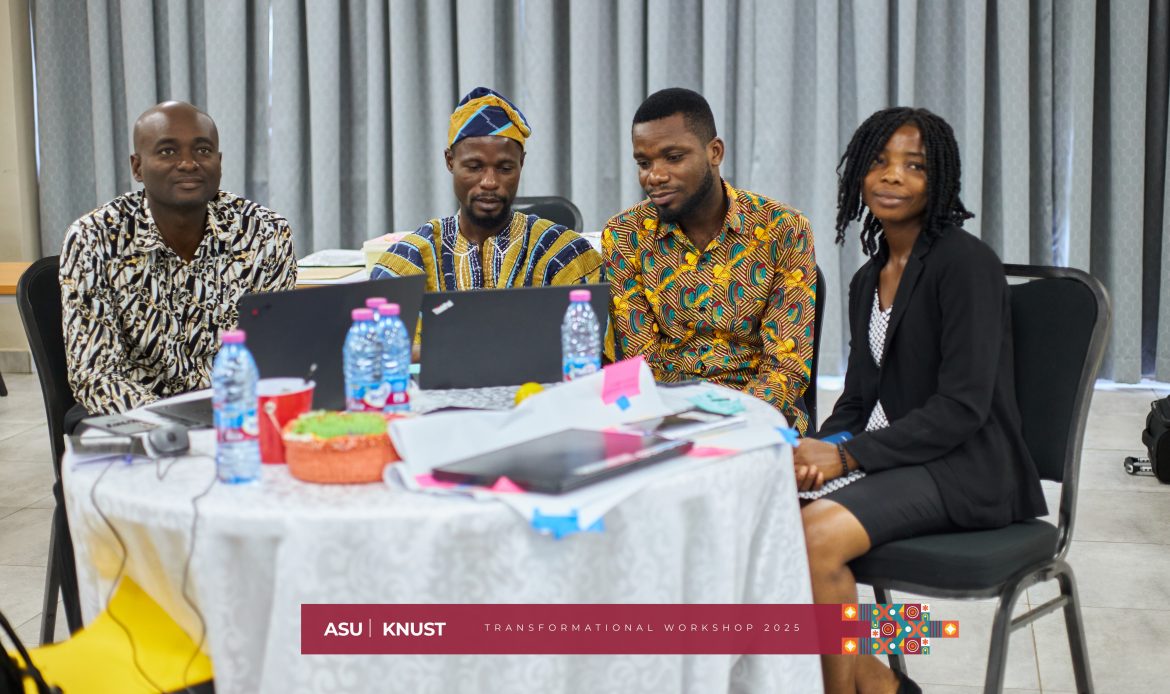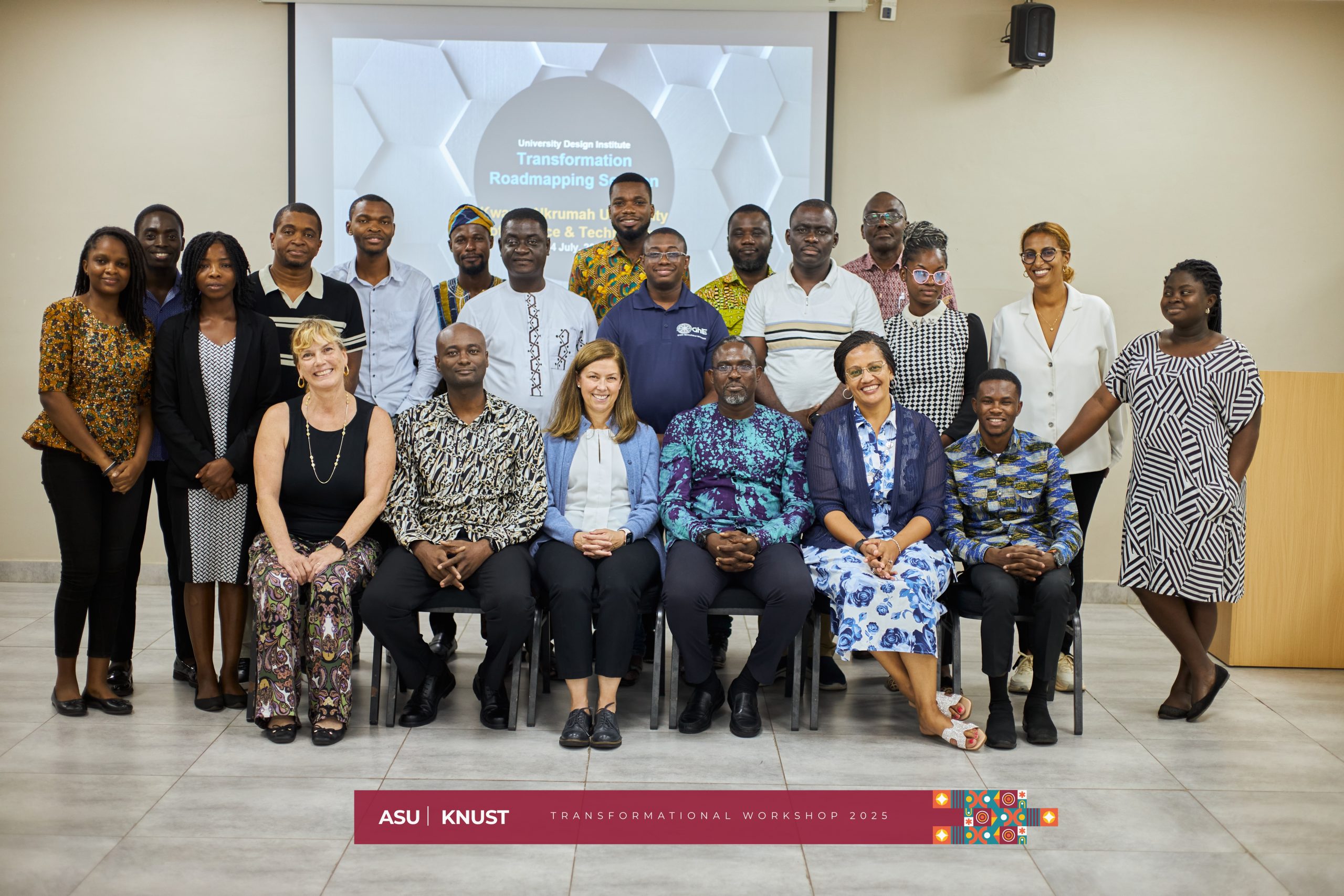The E-Learning Initiative, with support from the Mastercard Foundation, has organized a two-day strategic workshop to assess progress from phase one and outline a bold roadmap for digital transformation over the next decade.
The workshop, held from July 3-4, 2025, at the Impact Building, brought together scholars, lecturers, and facilitators to discuss the role of e-learning in supporting students and shaping their future. They evaluated and planned the next phase of the e-learning journey at Kwame Nkrumah University of Science and Technology (KNUST), Kumasi.
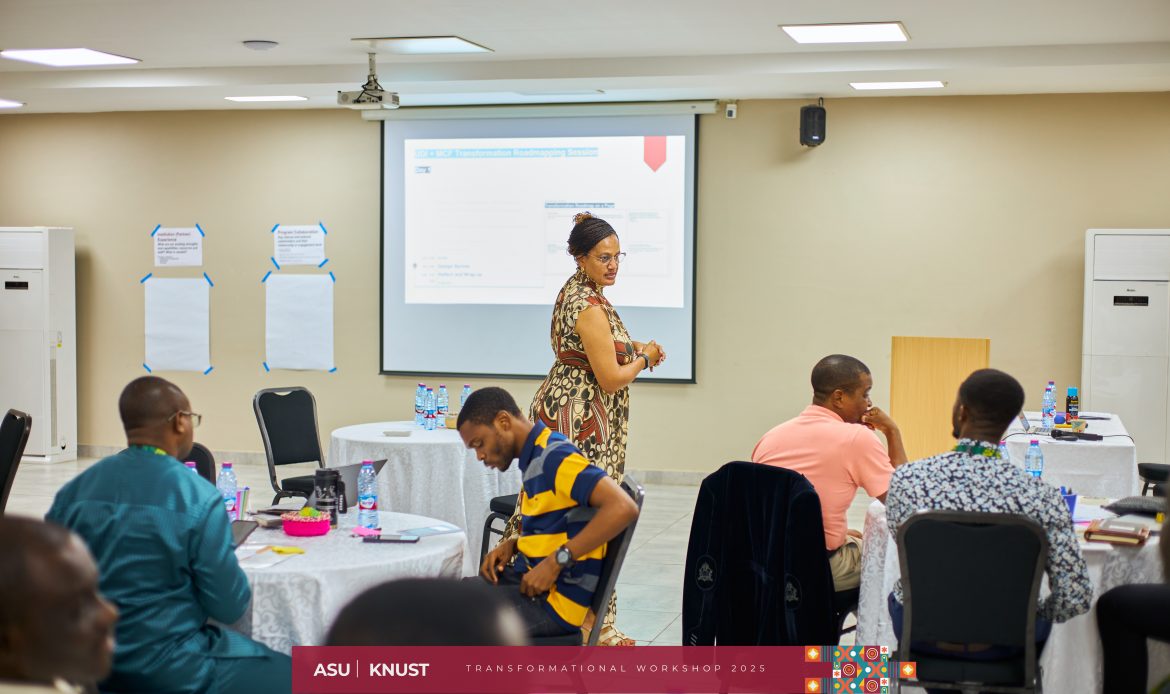
Lara Rabala, Facilitator Trainer and Executive Coach
The workshop was divided into two key sessions, with the first day focused on brainstorming and idea generation. Prof. William Otoo-Ellis, Chairman of the Mastercard Foundation Scholars Programme, shared his optimism about the workshop’s impact. He encouraged participants to fully engage with the sessions and to focus on transformation and collaboration.
Lara Rabala, Facilitator Trainer and Executive Coach, addressed the gathering with gratitude to the participants and emphasized that the current workshop was a build-up to phase one, which had included 8 to 10 institutions and focused primarily on teaching and learning. This new phase, she explained, was centred on developing a transformation roadmap for the next ten years, posing questions on the future of education and the role of technology in that vision.
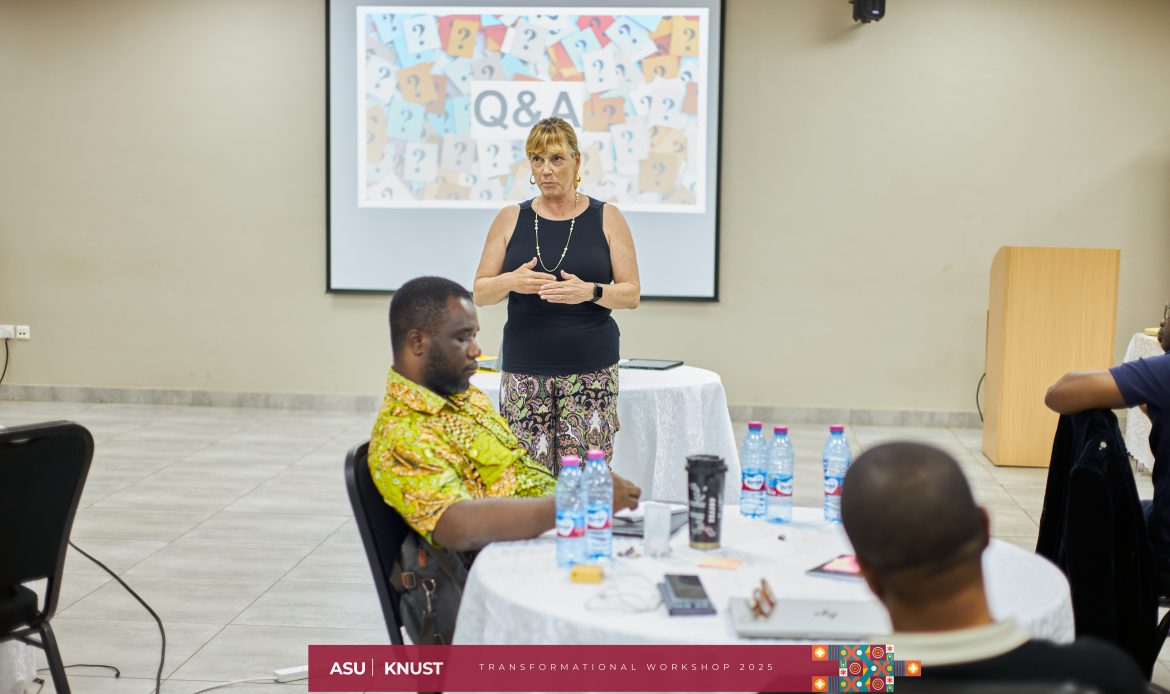
Ann Nielson, Project Director at the University Design Institute, ASU
Ann Nielson, Project Director at the University Design Institute, added that during phase one, most of the students in the institutions were still finding their footing, especially with the structural setup of online programmes. She announced plans for expanding scholarship opportunities and the introduction of graduate programmes such as masters and certificate programmes in instructional design. She reaffirmed the Mastercard Foundation’s commitment to leveraging technology in scaling learning opportunities, shaping online learning policies, and strengthening institutional frameworks.
“Mastercard Foundation is really interested in how we are going to use technology in our institutions to scale opportunities for scholars,” she stated.
KNUST’s digital response to covid-19
Mr. Courage Logah, Principal Investigator of E-Learning Initiative KNUST, presented a detailed account of KNUST’s response to the COVID-19 pandemic and their digital education initiatives. He revealed KNUST had a head start due to its pre-existing distance learning infrastructure. This included training of faculty to use platforms like WhatsApp, Zoom, and Google Classroom, enabling uninterrupted teaching during lockdowns. Also, a total of 137 faculty members and 10 students completed rigorous training programs focused on hands-on instruction and online content delivery.
“The first phase of these digital learning projects was highly successful,” he said.
Despite the achievements, Mr. Courage noted some challenges. Key among them was the difficulty of scheduling training activities around the academic calendar. He added that to address the concerns, KNUST is looking to enhance classroom technologies to support blended and fully online learning and expand distance learning opportunities to reach more learners. He also highlighted key initiatives: a partnership with Arizona State University (ASU) that saw 15 faculty and 3 technical staff enrolled in a postgraduate course on instructional design; the successful training of 137 faculty and 10 delivery development of online counselling tools and quality assurance frameworks; and proposed expansion of distance learning with improvements in lecture room technology and simulation tools.
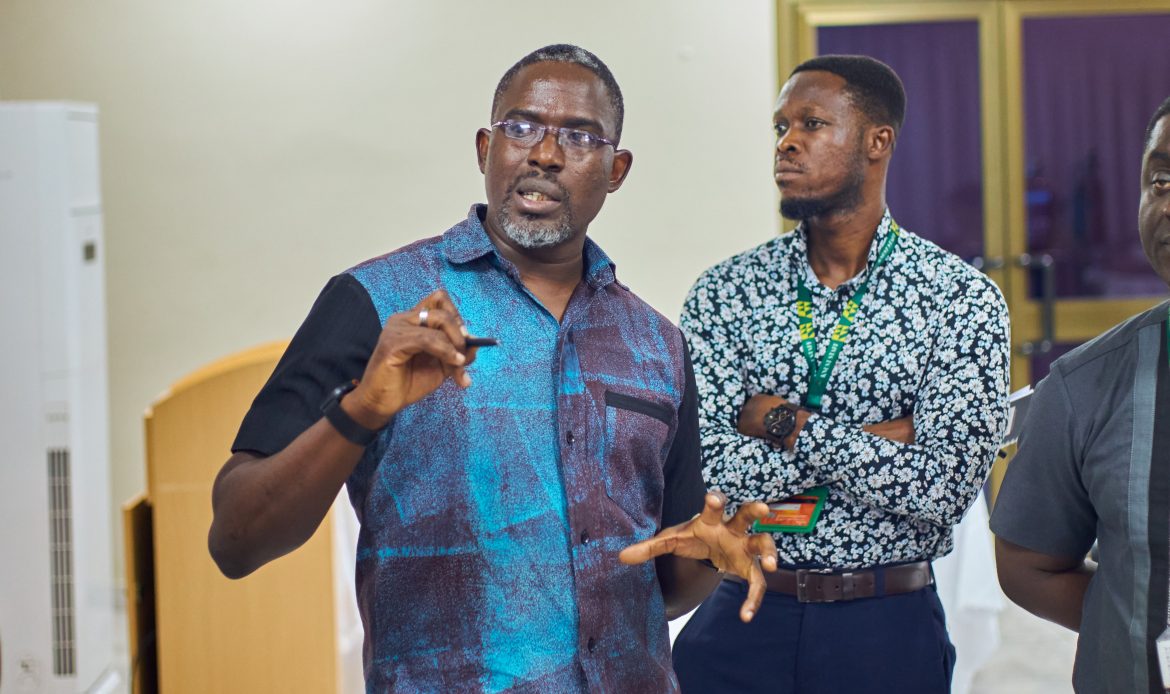
P.I, Mastercard Foundation e-Learning Initiative at KNUST, Mr. Courage Julius Logah
“The first phase of these digital learning projects was highly successful,” he said.
Despite the achievements, Mr. Courage noted some challenges. Key among them was the difficulty of scheduling training activities around the academic calendar. He added that to address the concerns, KNUST is looking to enhance classroom technologies to support blended and fully online learning and expand distance learning opportunities to reach more learners. He also highlighted key initiatives: a partnership with Arizona State University (ASU) that saw 15 faculty and 3 technical staff enrolled in a postgraduate course on instructional design; the successful training of 137 faculty and 10 delivery development of online counselling tools and quality assurance frameworks; and proposed expansion of distance learning with improvements in lecture room technology and simulation tools.
Mr. Logah concluded with a call for collaborative feedback to improve the e-learning ecosystem. The session continued with participants encouraged to reflect on their current state and envision their future, sharing ideas on where they see themselves in the next five to ten years. The facilitators presented the “4 E framework” – Enhance, Enrich, Extend, and Evaluate – to assess and advance e-learning initiatives. Under this framework, participants explored various components, including teaching and learning, student services, instructional infrastructure, leadership and culture, and finally, partnership. Through group activities, participants evaluated KNUST’s current state and identified areas of strength and improvement. Notably, most groups converged on similar points. Dawn Straw, Executive Director of Global Service at the University Design Institute, stated she was happy and surprised by the level of consensus among the groups.
“Despite working independently, when we came together to share our findings, it was striking to see how aligned everyone was in their assessment of the current state and future visions,” she said. “It was as if the minds were working in sync, and this collective understanding will undoubtedly propel us forward in achieving our e-learning goals”.
